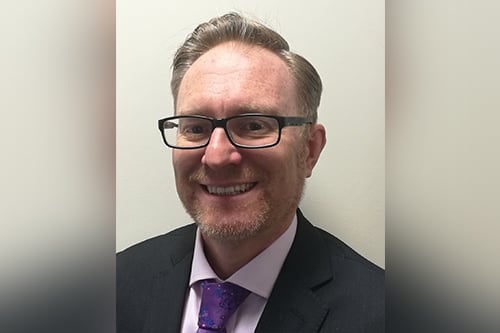

Account director at Gateshead-headquartered insurance broker NC Insurance, Richard Lloyd (pictured), has worked within the broker and insurer market in the UK and Australia since 1995 in a range of roles from claims handling, business development and client service management to leadership positions. Having worked in this broad array of positions and within a variety of industry sectors, including the private sector, the not for profit sector and the public sector, Lloyd has seen insurance at its very finest and believes that working in the industry is essentially a vocation.
“The reality is that through my lifetime in this industry, I’ve helped a number of clients with very large losses, where we got the claim successfully paid, which was critical to keeping the business up and running,” he said.
Lloyd highlighted a recent example where the successful pay-out of a claim led to the client’s business getting back up and running, with 20 people in employment who would have otherwise have been out of work. Those are the times when you go home and you feel really good about what you do, he said.
Lloyd has been with NC Insurance since 2016 and highlighted the history of the brokerage which was formed in 1928 and is a family-owned firm. Historically the client base of the business was privately owned SMEs, he said, but, about 10 years ago, it developed an offering for not-for-profits and the charity sector, and in the last four years has started to work with public sector organisations.
In a rare bit of good news considering the coronavirus outbreak and business interruption sweeping the globe, NC Insurance was recently named a ‘supplier’ by Crown Commercial Service (CCS) to deliver insurance services to the UK public sector. This came about several years after the broker was invited to work with a facility management company which is a wholly owned subsidiary of an NHS hospital trust, Lloyd said. Working with that client, he outlined, the brokerage learnt a lot about the risks that this business faces and developed a comprehensive insurance programme, which was priced more competitively than the Government-backed scheme.
“Armed with the above knowledge, we started to market ourselves to other NHS owned entities,” he said. “We discovered that not being on the CCS framework was an impediment. That’s when we got in touch with CCS to investigate when the insurance services framework would be available to new suppliers. The new framework was advertised last year and we successfully applied.”
This success will help NC Insurance reinforce its relationships with existing clients, he said, and shows that the business has successfully passed the Government’s due diligence assessments. This gives off a great message to prospective clients, he stated, as their procurement teams do not have to carry out due diligence on the broker as this has been done for them.
All service providers, not just insurance brokers, have to provide exceptional customer service, Lloyd said, and this has increased in recent years as providers of poor service simply will not survive. He feels very strongly, however, that it is essential for brokers to add value to their clients beyond insurance savings.
“Increasingly within financial services, and therefore general insurance, I think there’s a perception that this is a transactional relationship, almost like a commodity,” he said. “When buying your own motor insurance or travel insurance, price is going to be the number one factor in whether you buy or do not buy a particular product. So that’s the challenge that we find.”
Insurance is not a commodity, Lloyd said, as the buyer can influence the price that they pay by demonstrating that they are a good risk. In your personal life that is hard to do, he said, but for commercial entities and larger organisations, it is much easier to prove to an insurance underwriter why they are a better risk and why they should receive their premiums at a lower price. The role of brokers is to present their clients in the best light possible while remaining compliant with the Insurance Act, he said, and to advise clients on how best to position themselves in the insurance market.
“If you take the NHS procurement teams, for example,” he said, “these teams will be great at sourcing clinical equipment because of what they do day in and day out. What they’re not used to is the insurance market, which is where we come in. We can tell them which underwriter will offer the best deal and what the best product is for each particular risk. For us, this is still very much an advice-led service.”
The role of brokers is to make sure that the chosen risk protection strategy is right for their clients and to be advocates for their clients, Lloyd said. As automation increases, he noted, the provision of insurance services follows other financial services such as banks, with more products being delivered electronically.
“This means the role of the broker will be less about what we do,” he said, “and more about what value we bring through good advice.”
